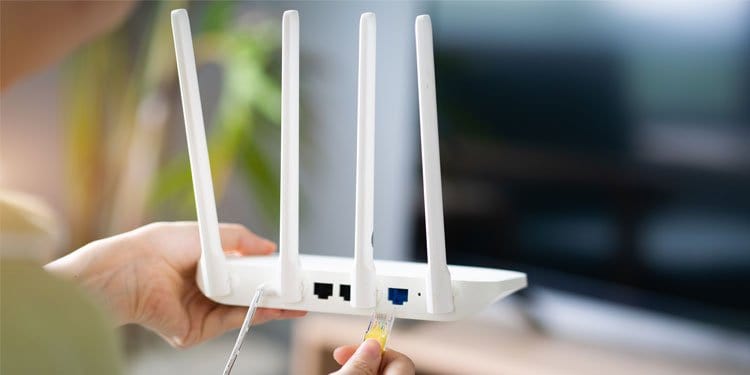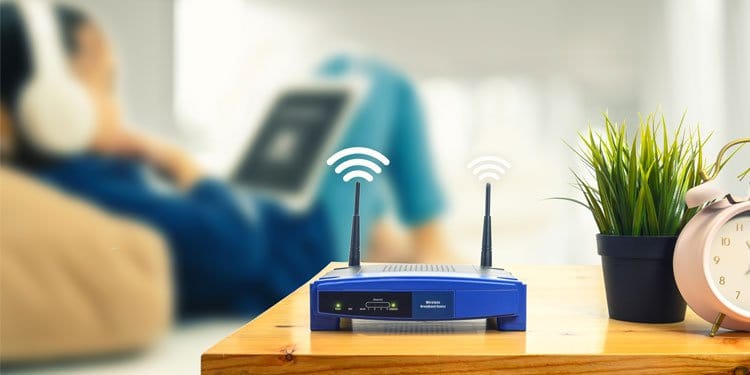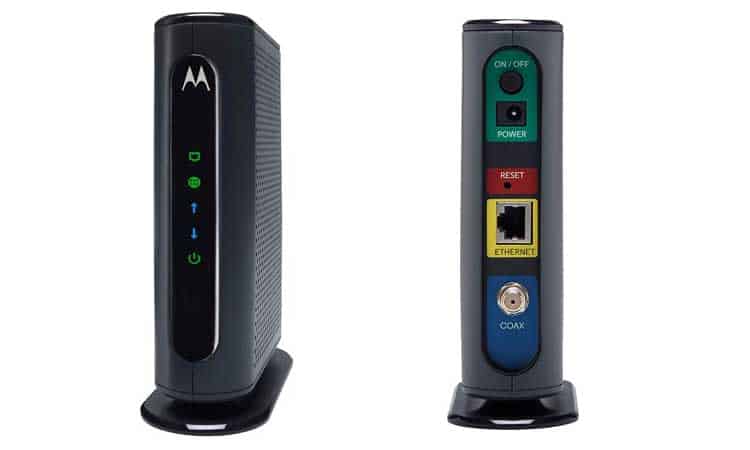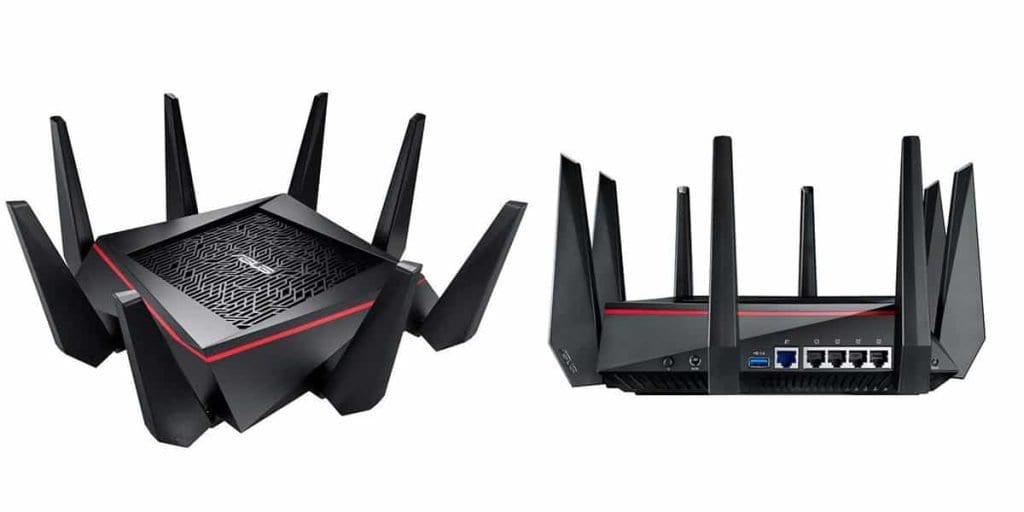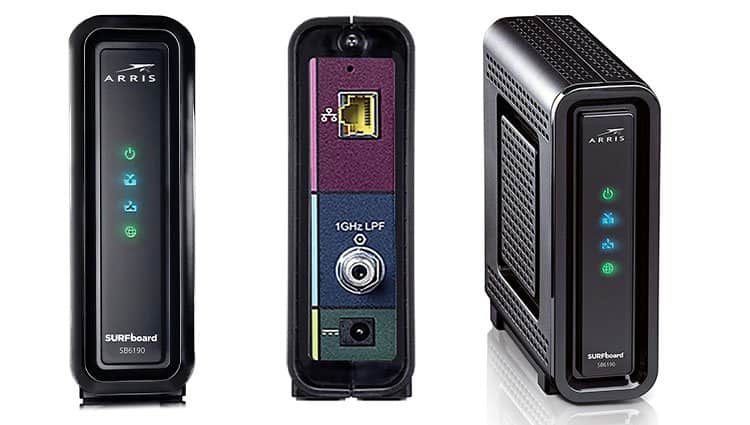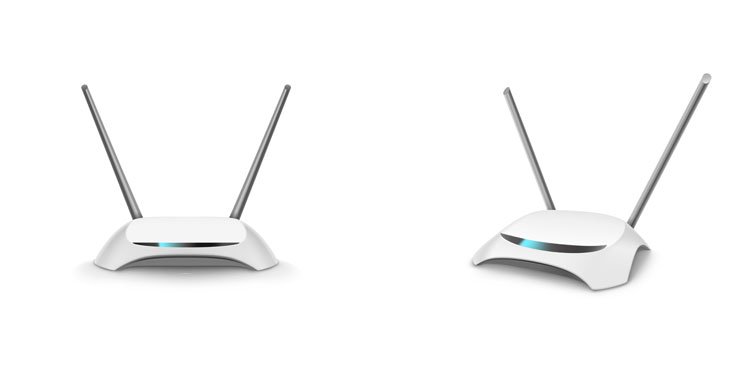Modems are the networking device between your home network and your ISP. All the data and information to and from the internet arrives or leaves your internet line through the modem. The connection type can be cable internet, wireless internet, or fiber optic and the modem must match this appropriately. The question then arises, what about router modem compatibility? Well, it’s quite simple actually. Read ahead and find out.
How Do Routers Work?
Each internet-connected device in your home needs to reach the router first. Routers can provide either wired or wireless networks.
Wired networks need an ethernet connection between the router and the network device. Network speed is dependent on the speed of the connecting port and the quality of the cable used. The better the speed you want, the more costly the cable is. A Cat 5e cable can send up to 1Gbps of information. But, if you have Gigabit internet, you need to buy at least Cat6 or higher.For wireless networks, data transmission takes place through radio waves. A wifi-capable device needs to send requests to the router and so receive responses. The biggest advantage of going wireless is not having to set up cabling around your house. But, network speed degrades compared to wired connections. It also has other issues such as signal strength loss, channel interference, and so on. The latest available wireless standard is WiFi 6, as it offers the best connectivity. Wireless routers come in three variants.Tri-band: 6E capable routers, the latest technology supporting IEEE 802.11ax protocol with 6Ghz bands that still support the older bandsDual-band: 5 GHz and 2.4GHz capable routers provide a faster wireless connection and still support older devices.Single-band: 2.4 GHz routers provide a slower connection but have greater coverage areas.
The range of 5G is quite low compared to 2.4G, while 6G has an even lower range. But they make up for it by having a higher link speed. Your older devices may not support 5G connections, in which case you have to use 2.4G connections for them. Always go for the 5G connection first. If you feel the network is slow, then you should switch to 2.4G.
Do Modems Matter ?
The modem works with your router to provide you a complete internet connection. It is the final device that allows information to leave your home network and interact with your ISP’s infrastructure. Older modems have low-tier speed. This means they have a limit on the connection speed that they can support. Your ISP may improve your internet package to give you better connection speeds. A general rule of thumb is to upgrade your modem every 4-6 years to avoid bottlenecking your upgraded connection. Check your ISP’s website on their list of compatible modems. Also, if your ISP hasn’t upgraded to DOCSIS standard 3.0 or higher yet, it may be time to change the ISP first. Once you sort out the upgrade of your modem, you will notice much higher internet speeds.
How Do Routers and Modems Work ?
A modem connects your home network to the internet and is usually provided by your ISP during installation. It transmits information over non-ethernet lines such as phone lines, TV cable lines, or fiber optic cables. The modem sends and receives signals and forwards them to the router. Routers are much more complex in their mode of working. It manages your home network by assigning unique local IP addresses to each device. It also connects each of your network devices to the internet. Thus a router remembers which device made what requests. Once it gets the response from the modem, it passes it to the correct device without fail. A router is also responsible for network security, implementing firewalls to hold off attackers from breaking in. Advanced routers are quite configurable too. They can provide a complex network architecture inside your home and office. But, without a working modem, you are left with a local network with no internet. Both of these components need to work properly to ensure optimal router modem compatibility, decent security, and efficient bandwidth.
Do All Routers Work With All Modems? (Router Modem Compatibility)
The adopted practice of connecting a router to a modem is through an ethernet cable. That is the simplest and most standard means of making sure every router works with all modems, which is why all manufacturers make sure that their router and modem devices are cross-compatible. Industrial network devices may not have ethernet ports on them. For example, there may be certain router models that only have fiber optic ports. Some older modems may offer only direct phone line connections to your PC. But, these are all exceptions, and they are rarely used at home and in business these days. As long as both your router and modem have ethernet ports on them, it should be compatible. Ensure that you connect the cable coming from your modem to the port labeled WAN port on your router.
What Type of Router Do I Have?
You can check the type of your router by a physical examination. Most routers come with their manufacturer’s label on them. They have the brand name, model number, default credentials, and so on. Your ISP typically provides your router. But it is also possible to buy a router of your own. Some routers have built-in modem functions. In comparison, standalone routers need to work with your modem to provide internet connection to more than one device in your home network. If you have a single device, it’s usually a router and modem built into one. If your ISP has provided you with a modem only, then your second device is a DSL router. It should connect to the modem via ethernet cable.
Does the Router Need to Connect to a Modem?
This depends on the type of router. For routers with built-in modems, you don’t need to connect with a modem for the internet. Non-ethernet cables plug directly into these routers, which perform the job of a modem. For example, ADSL routers have a phone line port on them. Fiber Optic routers have fiber optic ports on them. But, DSL routers have an Ethernet WAN port on them. You have to connect this port with a modem to establish an internet connection. You can still connect your devices to any modem-less router. But they will exchange information within your local home network only.
Is a Modem Required for Wireless Routers?
If you need an internet connection, wireless routers must connect with the modem. But, some network activities don’t need a modem to work. For example, you can print using a network printer or screencast from phone to TV. Or you can even share files between your PC and phone. All these happen through the internal router network without the use of the internet.
